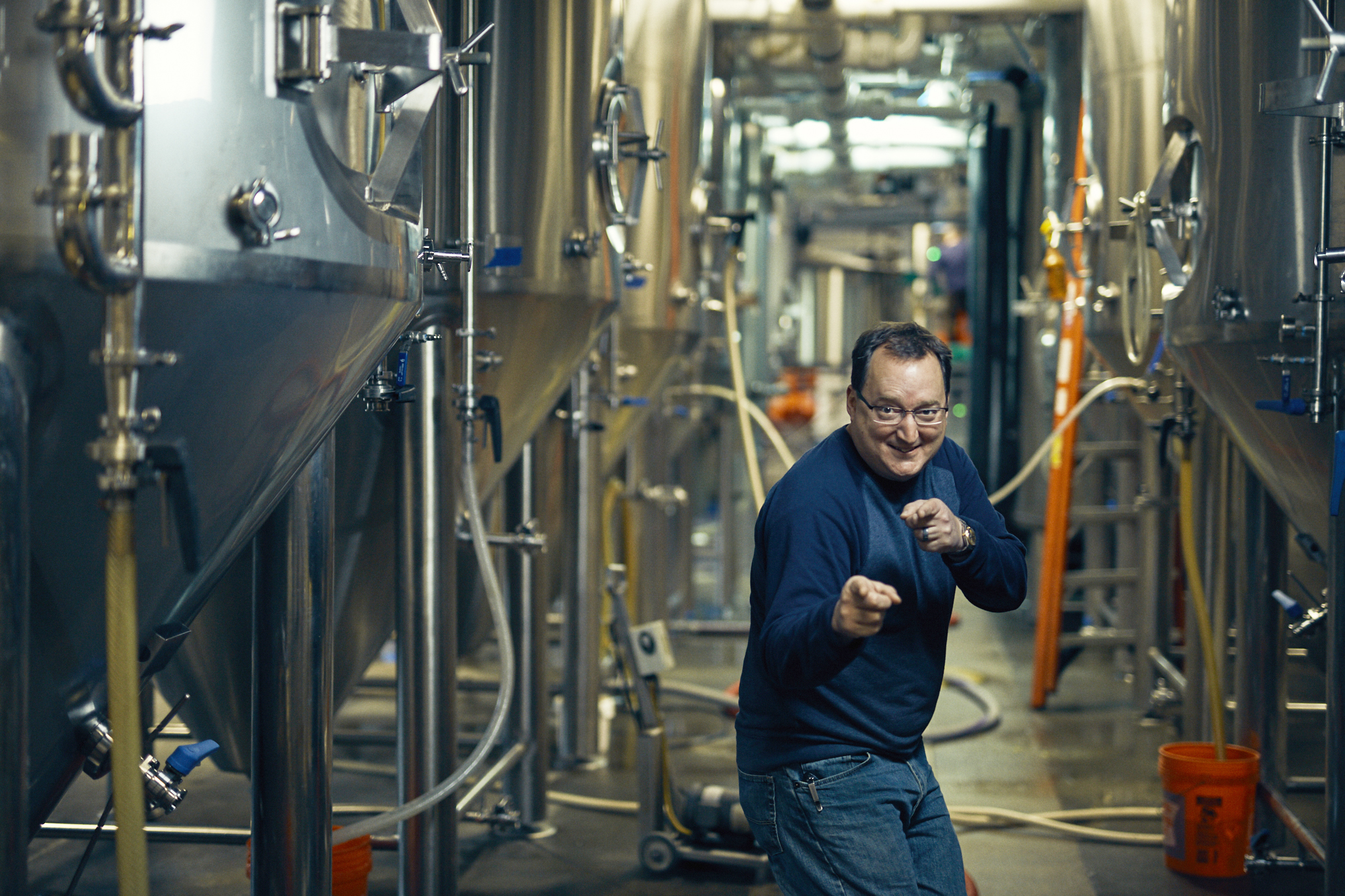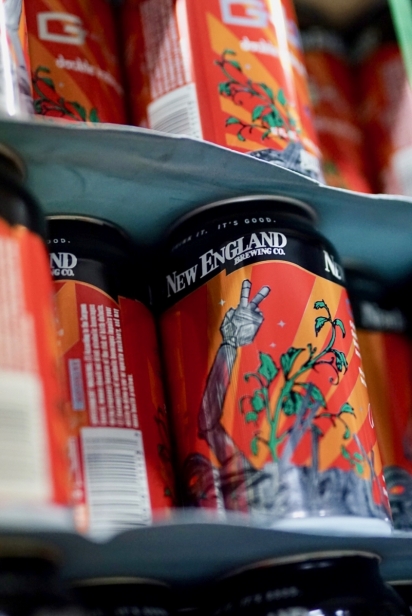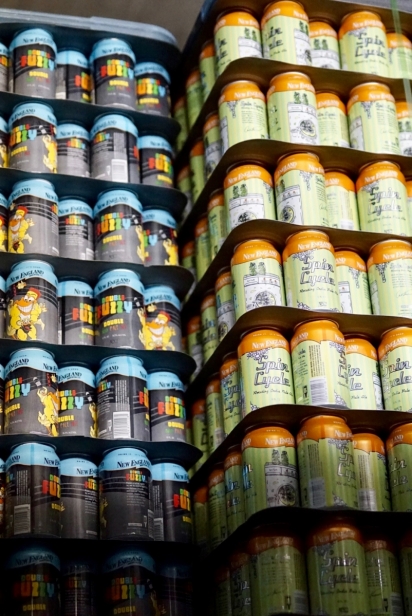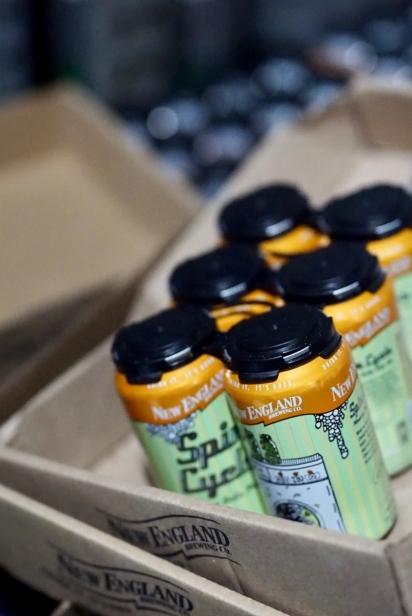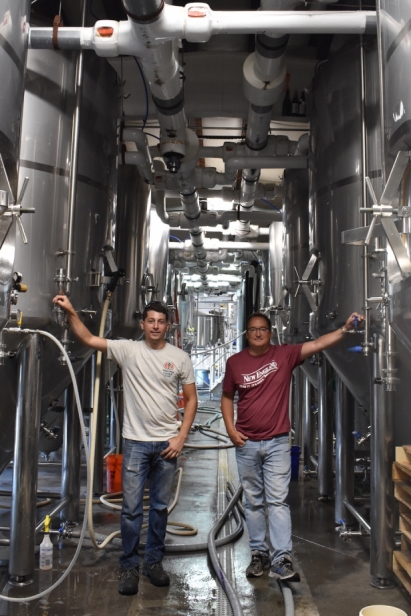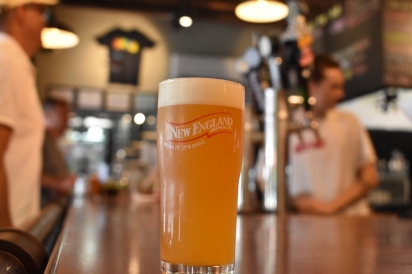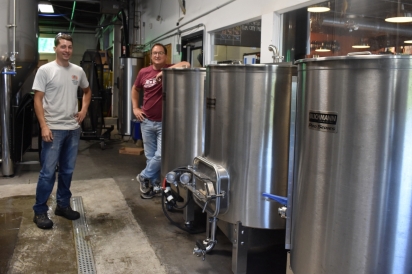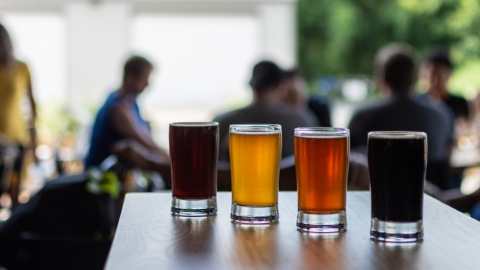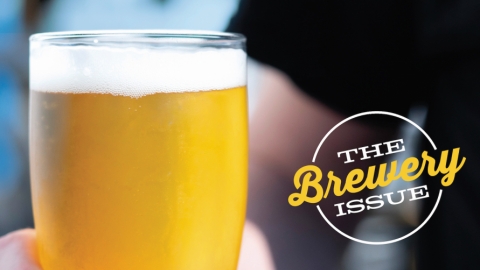A Connecticut Brewing Godfather
When Rob Leonard reinvented a closing brewpub in Norwalk as a small brewery in Woodbridge, he focused on beer quality and keeping the nascent business afloat. Now, as owner of New England Brewing Company, Leonard is considered a godfather of the Connecticut craft brewing industry.
The landscape of Connecticut brewing has changed tremendously since Leonard was making beer out of a former mechanic’s shop in 2002. The number of breweries leapt from about six at the time to around 100 today. But that’s not all that’s changed. Breweries are no longer just the places where your beer is made; they’re taste-driven experiences.
If New England Brewing (NEBCo) is known for anything to casual beer drinkers, it’s for their India pale ales (IPAs). The star ingredient in these beers is hops, a vine that produces a cone-shaped flower that can bring out a range of flavors and aromas, depending on the variety. Their flagship Sea Hag IPA offers pleasant bitterness with a floral aroma and constitutes about 85% of the total volume of beer that NEBCo makes. Their G-Bot and Fuzzy Baby Ducks IPAs are also perennial favorites. It’s not all the brewery offers, however. From their rich, mocha-sweet Imperial Stout Trooper, to the delicately tart Weiss Trash Culture (a Berliner weisse), to the aggressively warming 668: The Neighbor of the Beast (a Belgian-style ale), NEBCo covers the spectrum.
For Leonard, turning a small-batch operation into a 30-barrel brewery on the verge of further expansion has meant sharing power with head brewers and their assistants. “I had to let some of the younger guys do it and step back and not look over their shoulder,” Leonard says. “I think that’s the secret to this place: the autonomy that the brewers have. The brewers control the brewery, and I think that’s part of the magic.”
Some head brewers have moved on and started their own breweries. Counter Weight Brewing in Hamden and Tribus Beer Company in Milford both were started by former NEBCo brewers. With a new brewery opening every few months since 2017, there have been plenty of chances for Leonard to mentor. He said he’s been asked advice about opening breweries since day one. “I sometimes scare them to death, so that they don’t want to do it; I’m very honest,” Leonard says. “It’s not just hanging out and drinking with your buddies. It’s a lot of work. It’s different today, though. You can open up with a tap room and a small brewery, and there’s a lot of profit margin there. Back when I started, I was selling to distributors. We weren’t like a big brewery with marketing material and vans. It was just me.”
Jeff Koebbe, who started as an assistant at NEBCo and quickly worked his way up to head brewer, says Leonard has created an environment that blends the best of old and new. “There have been a lot of great recipes that have come through here. You want to pay homage to that and keep the legacy of those recipes going, but there are also style holes, new taste palates, and room for what you want to come up with. You have the knowledge of former brewers to stand on along with a creative environment that lets you do what you want to do. We get to do a lot of messing around here."
One way Leonard has kept creativity at the forefront of the in-house dynamic is by installing a playground. For NEBCo brewers, that takes the form of a 3.5-barrel pilot system that looks like a set of lobster pots next to the giant vessels of the main brewing system. Using the pilot system, brewers can experiment with a different kind of yeast or a new supplier’s malted wheat or create small batches of beers “out of season,” like a light, crisp lager during the dead of winter. “The little pilot system is for fun stuff that allows us to create things we haven’t done before,” Koebbe says. “We’ve been experimenting with different kinds of lagers and different yeast strains.” Some beers make the leap from pilot batch to full brewing system. For example, playing with new combinations of hops as part of their Spin Cycle series led to a triple-IPA version of Fuzzy Baby Ducks, known as Triple Fuzzy.
While his brewers balance legacy and experimentation, Leonard relishes taking a step back from the tanks. “My new passion is growing the company,” he says. “It’s about taking care of all these guys that are taking care of the company and taking care of me. Just yesterday, the canning machine was malfunctioning, so there were cans everywhere, and I jumped in to help. Then I saw Jeff and [brewer] Tommy Smith come to fix it, which used to be my role. I was like, ‘Okay, these guys got it.’ It’s like being a proud father.”
> New England Brewing Company: 175 Amity Rd., Woodbridge; 203-387-2222


